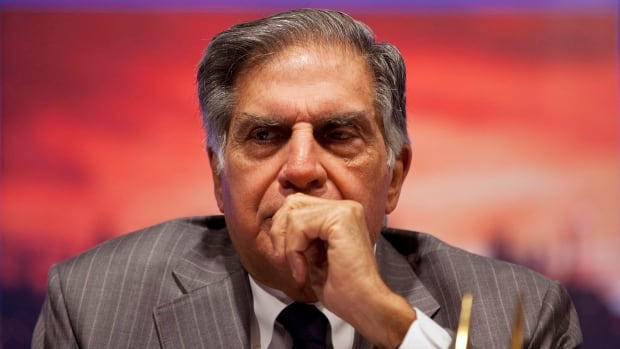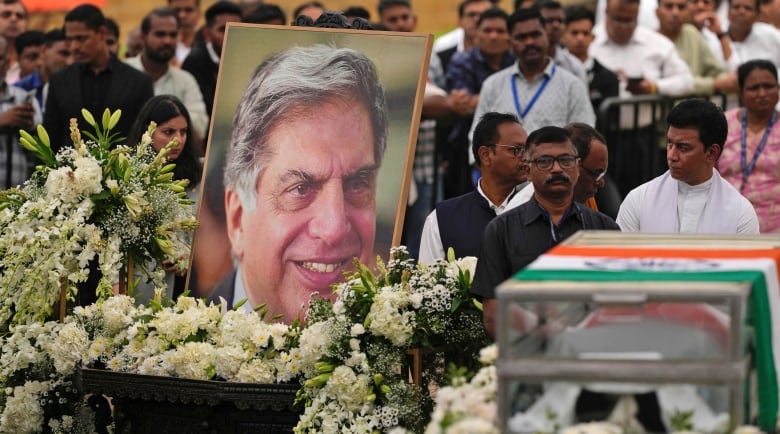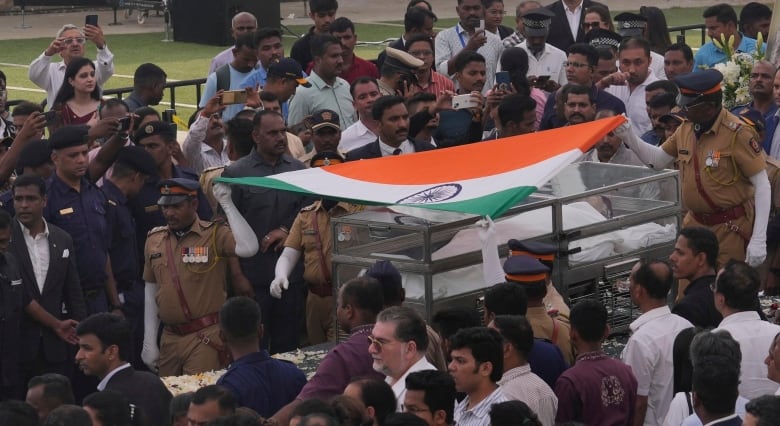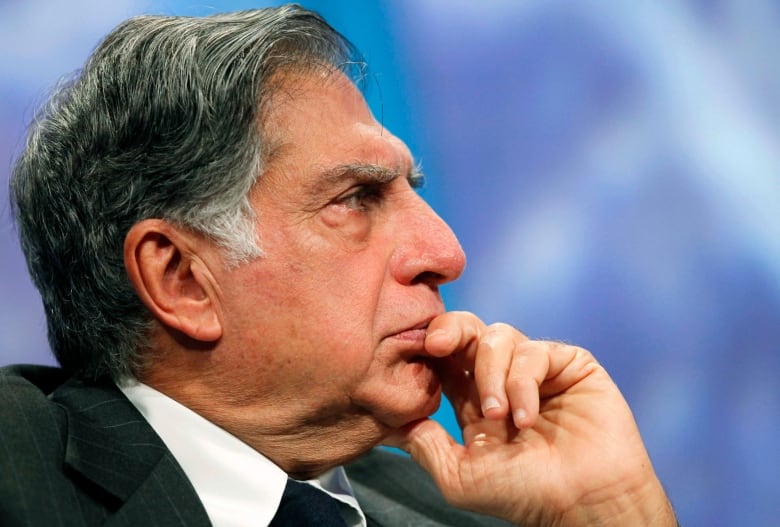
Thousands of people paid their last respects on Thursday to Ratan Tata, former chairman of Indian conglomerate Tata Group, in India’s financial capital ahead of a state funeral later in the day.
The veteran industrialist, hailed by Indian Prime Minister Narendra Modi as a visionary business leader, died at a Mumbai hospital on Wednesday night. He was 86.
Tata’s body was taken Thursday to Mumbai’s National Centre for the Performing Arts, where the public, industrialists, state officials and celebrities lined up to pay their final respects.
Current Tata Group chairman Natarajan Chandrasekaran described Tata as his “friend, mentor, and guide.” He did not provide a cause of death.

Tata was admitted this week to the Breach Candy Hospital in south Mumbai, the city where he lived. Tata Group issued a statement on Monday saying there was no cause for concern regarding his health and he was undergoing checkups for age-related medical conditions.
Tributes streaming in
Prime Minister Modi described Tata as a visionary leader and a compassionate and extraordinary human being.
“He provided stable leadership to one of India’s oldest and most prestigious business houses. At the same time, his contribution went far beyond boardrooms,” Modi said on the social media platform X.
Shri Ratan Tata Ji was a visionary business leader, a compassionate soul and an extraordinary human being. He provided stable leadership to one of India’s oldest and most prestigious business houses. At the same time, his contribution went far beyond the boardroom. He endeared… <a href=”https://t.co/p5NPcpBbBD”>pic.twitter.com/p5NPcpBbBD</a>
—@narendramodi
Google CEO Sundar Pichai said Tata left behind an extraordinary business and philanthropic legacy and was instrumental in mentoring and developing modern business leadership in India.
“He deeply cared about making India better,” Pichai said on X.
Cornell University, where Tata received a bachelor’s degree in architecture, said he was its “most generous international donor.”
“We will remember his legacy of transformative giving to Cornell,” the university said on X.
Tata Group’s long legacy
Tata Group is a sprawling collection of nearly 100 companies, including Tata Motors, the country’s largest automaker; Tata Steel, the largest private steel company; Tata Power; and the information technology company Tata Consultancy Services. They employ more than 350,000 people worldwide with a presence in over 100 countries.
Its products are ubiquitous in Indian homes and include daily necessities such as salt, tea and mineral water.

In June 2008, Tata bought Jaguar and Land Rover from Ford for $2.3 billion US. A year earlier, it took over Britain-based steel maker Corus for $12 billion US. At that time, Corus’s annual steel production was four times higher than that of Tata Steel.
Tata Group pioneered commercial aviation in India by launching an airline in 1932 that later became Air India. The government later took it over. Tata Group then bought Air India from the government in 2021. It also started a full-service carrier, Vistara, with Singapore Airlines, but recently merged it with Air India.
In 2009, the company surprised the automobile industry by launching Tata Nano, a tiny vehicle with a rear engine costing about 100,000 rupees (then $2,000 US). Publicized as a “People’s Car,” it could seat up to five adults. Ratan Tata said at the time that it would provide a “safe, affordable, all-weather form of transport” for millions of middle- and lower-income Indian consumers.
However, due to low sales, the company stopped production of the tiny car in 2018.
Ratan Tata joined the Tata Group in 1961 and succeeded J.R.D. Tata as chairman after the latter’s retirement in 1991.

That followed the liberalization of India’s economy in 1990, bringing massive economic reforms and global investment in the country.
In December 2012, Tata retired as chairman of Tata Group. He briefly served as interim chairman beginning in October 2016 following the ouster of his successor, Cyrus Mistry. He returned to retirement in 2017, when Chandrasekaran was appointed chairman of Tata Group.
Tata never married and is survived by a brother, two half-sisters and a half-brother.